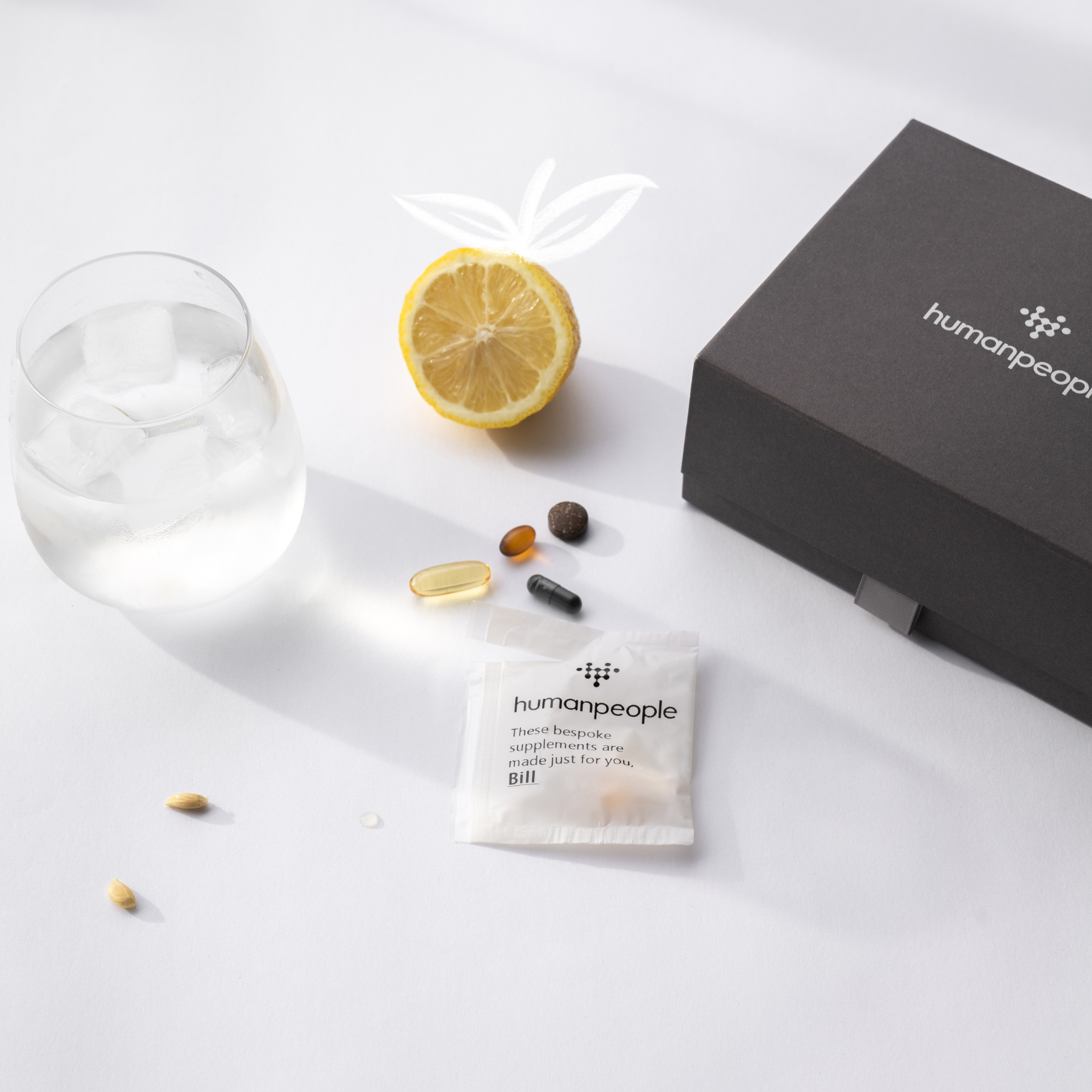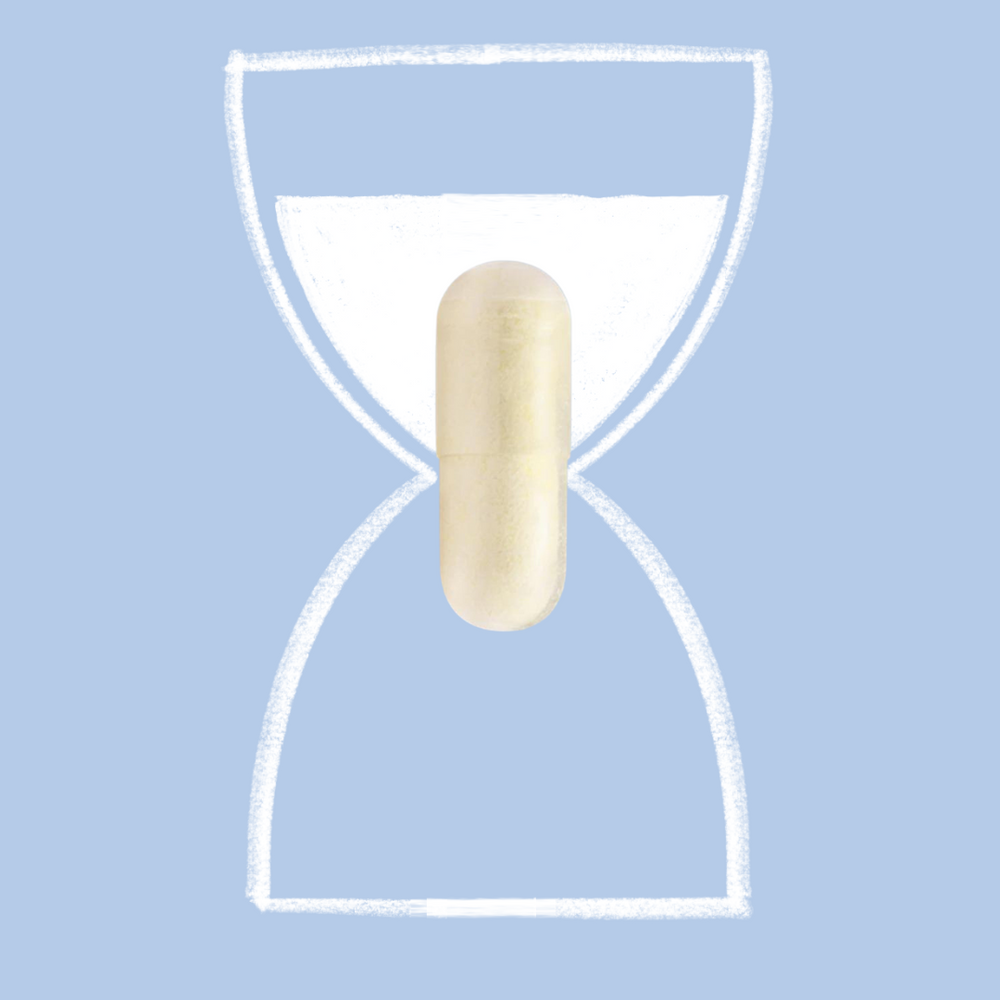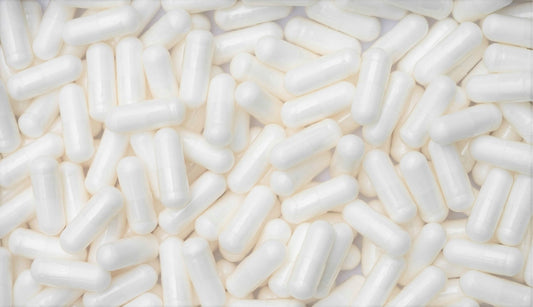Lorem ipsum
1
You have saved personalized supplements. Would you like to add them back to your cart?
£0.00 GBP
Your cart total must be £20.00 or more to proceed.
600mg
• Promotes antioxidant production
• Supports respiratory health
• Boosts brain health
Couldn't load pickup availability
 Vegan
Vegan
 Vegetarian
Vegetarian
 Non-GMO
Non-GMO
 GMP
GMP
 Gluten Free
Gluten Free
N-Acetyl-l-Cysteine, or NAC, is a powerful supplement known for its antioxidant properties, stemming from its ability to promote the production of glutathione - often dubbed the "master antioxidant". Derived from the dietary amino acid L-cysteine, NAC has various health benefits and is primarily recognized for its potential to support respiratory health and brain function.

Glutathione Boost
Biochemical Role of NAC
NAC is a precursor to glutathione, which means it's a substance that precedes and participates in glutathione production. Glutathione, made in our bodies from the amino acids cysteine, glutamate, and glycine, is an antioxidant that defends cells against damage from free radicals and reactive oxygen species, by-products of metabolism that can harm cell structures.
NAC's central role is to provide cysteine, the limiting factor in glutathione synthesis, ensuring there's enough of it to produce glutathione. NAC exhibits direct antioxidant properties, making it a dual-action defender against oxidative stress.
Health Implications
NAC is renowned for its antioxidant, detoxifying, and inflammation-modulating effects, given its role in glutathione production.
Liver Health: Since the liver is the primary site for glutathione synthesis, NAC's contribution towards glutathione production makes it critical for liver health and detoxification processes. The liver constantly deals with toxins, requiring high levels of glutathione. NAC, by boosting glutathione production, supports liver function and promotes detoxification.
Lung Health: NAC may aid in conditions involving the respiratory system, as it breaks down mucus, making it less dense, and it has antioxidant properties that protect delicate lung tissues from inflammation and oxidative damage.
Brain Health: There's mounting evidence that NAC may support mental and neurological health. It appears to modulate glutamate levels, an important neurotransmitter, and replenish glutathione in the brain, protecting neurons from oxidative stress.
Mood and Behaviour: Preliminary research indicates NAC could be beneficial in conditions associated with mood and behaviour, as it modulates several key neurotransmitters in the brain. It's being explored as a possible adjunct treatment for certain psychiatric conditions.
NAC's effects may not be immediately noticeable, as it works at a cellular level to reduce oxidative stress and inflammation. Over time, those taking NAC may notice improvements in respiratory health, cognitive function, or overall wellbeing.
Take daily with food and water, unless specified otherwise on the sachet.
* Percent Daily Values are based on a 2,000 calorie diet.
† Daily Value not established.
Anti-Caking Agent: Maltodextrin (Corn), Capsule Shell: Hydroxypropyl Methyl Cellulose, Anti-Caking Agents: Magnesium Stearate, Silicon Dioxide
Publications you might find interesting

1. Samuni, Y., Goldstein, S., Dean, O. M., & Berk, M. (2013). The chemistry and biological activities of N-acetylcysteine. Biochimica et Biophysica Acta (BBA) - General Subjects, 1830(8), 4117-4129.
2. Rushworth, G. F., & Megson, I. L. (2014). Existing and potential therapeutic uses for N-acetylcysteine: the need for conversion to intracellular glutathione for antioxidant benefits. Pharmacology & therapeutics, 141(2), 150-159.
3. Mokhtari, V., Afsharian, P., Shahhoseini, M., Kalantar, S. M., & Moini, A. (2017). A Review on Various Uses of N-Acetyl Cysteine. Cell journal, 19(1), 11–17.
4. Berk, M., Malhi, G. S., Gray, L. J., & Dean, O. M. (2013). The promise of N-acetylcysteine in neuropsychiatry. Trends in pharmacological sciences, 34(3), 167-177.
5. Morris, G., Anderson, G., Dean, O., Berk, M., Galecki, P., Martin-Subero, M., & Maes, M. (2014). The glutathione system: a new drug target in neuroimmune disorders. Molecular neurobiology, 50(3), 1059-1084.

Gain access to your own data driven dashboard, health reports and personalised supplement plans.


• Supports cellular health and longevity
• Boosts NAD function
• Promotes skin health and elasticity

